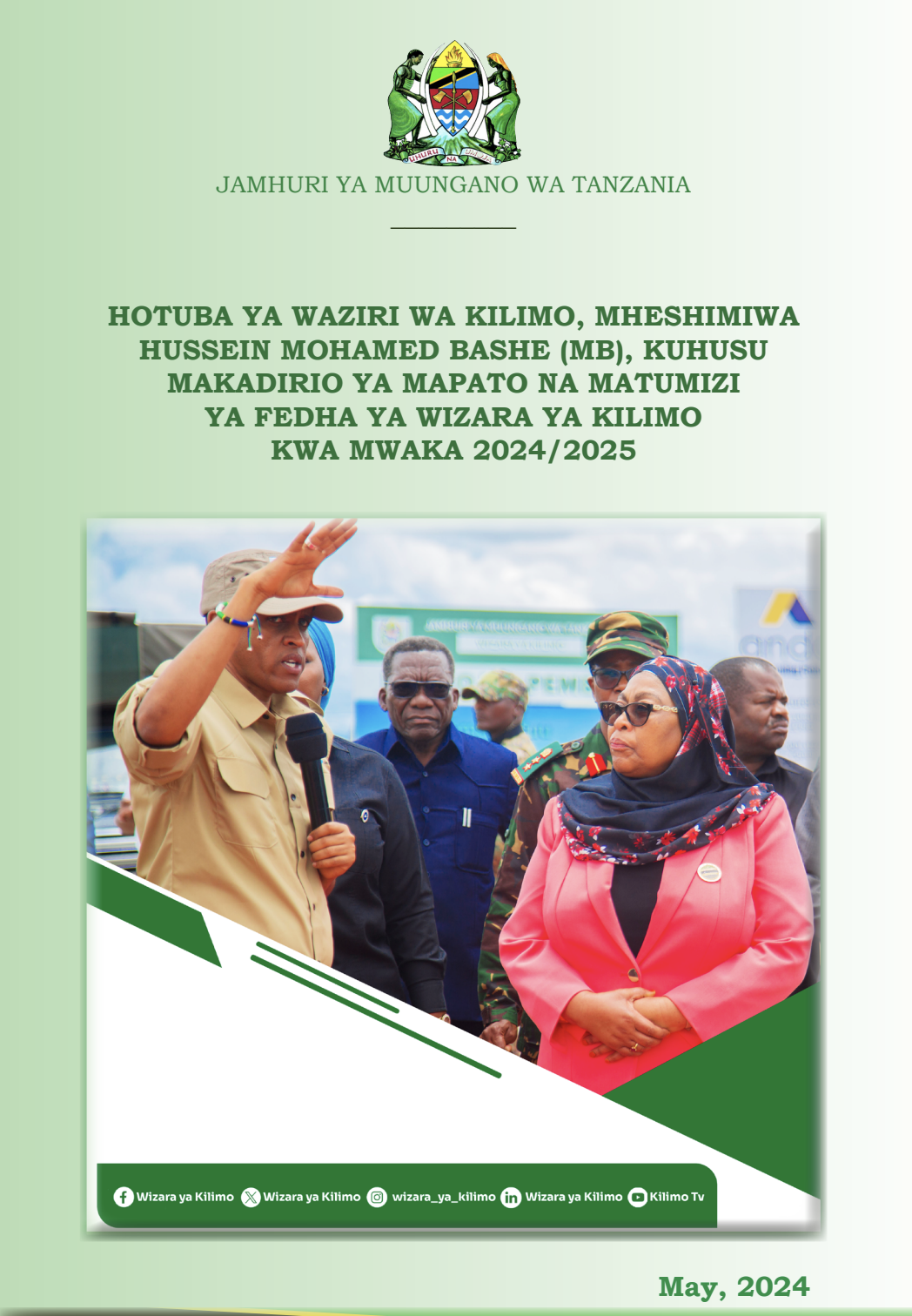Kilimokwanza.org Team
Tanzania is making significant strides in agricultural research and development (R&D) with a focused investment in seed research, pest management, and soil health. As outlined by Hon. Hussein Mohamed Bashe, the Minister of Agriculture, in his recent budget speech, these initiatives are crucial for increasing crop productivity and resilience, pivotal for the nation’s food security and economic growth.
In his address to Parliament on the 2024/2025 agricultural budget, Minister Bashe emphasized the importance of agricultural R&D in transforming farming in Tanzania. “Investments in agricultural research and development are critical for enhancing our crop yields and building resilience against pests and diseases,” Bashe stated. This commitment is part of a broader national strategy to ensure sustainable agricultural practices and improve food security.
Key Areas of Investment:
- Seed Research: Tanzania is investing in the development of high-yield, drought-resistant seed varieties. This research is geared towards creating seeds that can thrive in the diverse climates of Tanzania, ensuring high productivity even in adverse weather conditions.
- Pest Management: With the increase in crop losses due to pests and diseases, the government is focusing on integrated pest management (IPM) techniques. These techniques combine biological, mechanical, and chemical methods to control pest populations, minimizing the reliance on pesticides and reducing the environmental impact.
- Soil Health: Understanding that healthy soil is the foundation of productive agriculture, Tanzania is also investing in soil health initiatives. These include comprehensive soil testing programs to inform farmers about necessary soil amendments and the development of soil management practices that enhance fertility and reduce erosion.
Impact on Agricultural Sector: These investments in agricultural R&D are expected to yield significant benefits:
- Increased Crop Yields: Improved seed varieties and effective pest management strategies will directly contribute to higher crop yields.
- Enhanced Crop Resilience: By developing crops that are resistant to pests and adaptable to local soil and climate conditions, farmers can achieve more stable production levels year-round.
- Economic Benefits: Higher productivity and reduced crop losses will lead to increased income for farmers, contributing to rural development and economic stability.
Challenges and the Road Ahead: While the path to revolutionizing agriculture through R&D is promising, challenges such as funding allocations, technology transfer, and farmer education need to be addressed. Ensuring that research findings are effectively communicated and adopted by the farming community is critical.
Tanzania’s focused investment in agricultural research and development marks a significant step towards modernizing its agriculture and enhancing food security. By investing in seed research, pest management, and soil health, Tanzania is laying the groundwork for a more productive and resilient agricultural sector. Continued support and expansion of these initiatives will be vital to achieving the nation’s agricultural and economic goals. As these programs evolve, they hold the promise of transforming the agricultural landscape of Tanzania, ensuring sustainability and prosperity for future generations.
